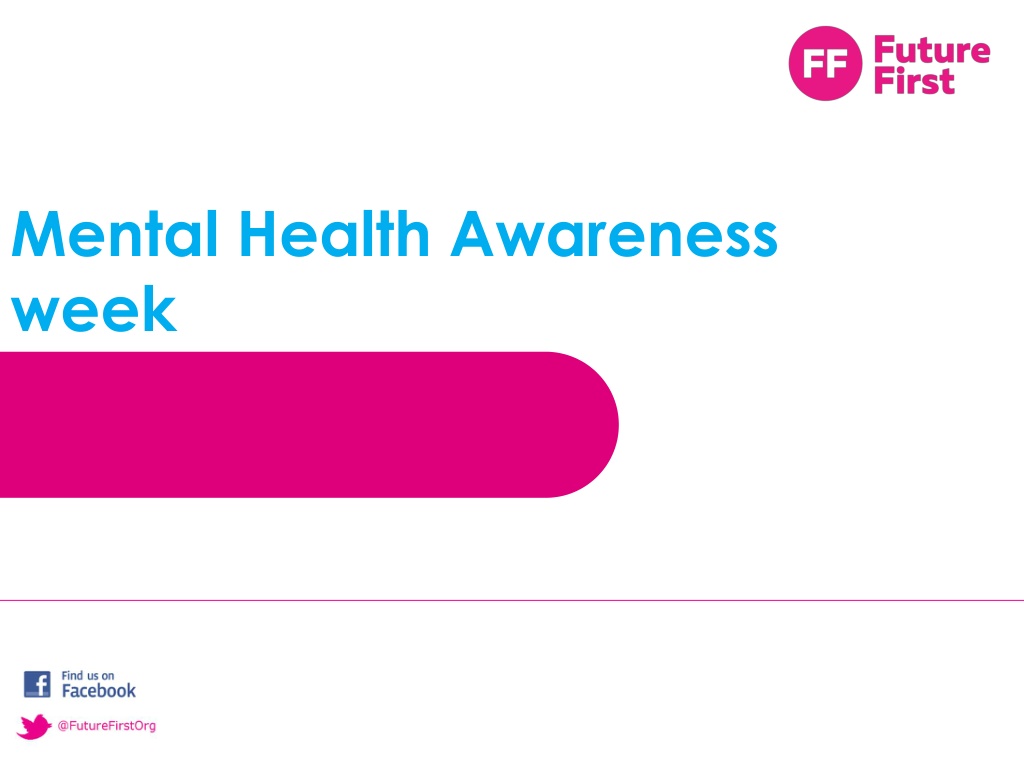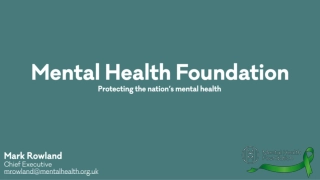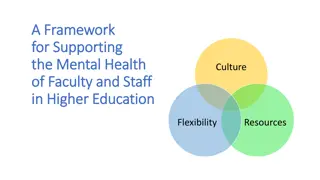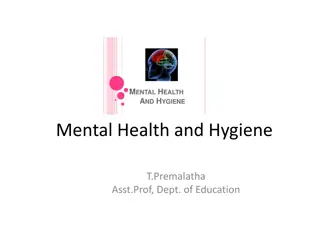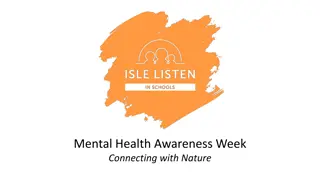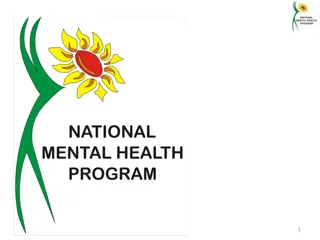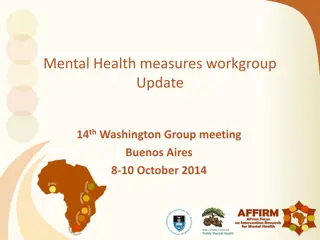Mental Health Awareness Week: Embracing Nature for Well-being
This year's Mental Health Awareness Week focuses on the theme of nature and its vital role in promoting mental well-being. The campaign highlights the importance of connecting with the natural environment to reduce stress, improve mental health, and enhance overall quality of life. By exploring the benefits of being in nature, individuals are encouraged to overcome barriers and find various ways to engage with the outdoors for improved mental health. The initiative emphasizes the significance of recognizing the need for breaks, engaging in outdoor activities, and fostering a deeper connection with nature for better mental well-being.
Download Presentation

Please find below an Image/Link to download the presentation.
The content on the website is provided AS IS for your information and personal use only. It may not be sold, licensed, or shared on other websites without obtaining consent from the author. Download presentation by click this link. If you encounter any issues during the download, it is possible that the publisher has removed the file from their server.
E N D
Presentation Transcript
Why do we have this week? 20 per cent of teenagers may experience a mental health problem in any year It is estimated that 1 in 6 people in the past week experienced a mental health problem 70 per cent of young people who experience mental health problems haven t had the right treatment early enough 50 per cent of mental health problems are formed by age 14 and 75% by age 24
Nature The theme for Mental Health Awareness Week this year is nature: Historically, our work and survival has been based on the natural environment. Over time, our work has taken us indoors, taking us away from the natural environment Our reaction to being placed under pressure
Why is nature important to mental health? Being in nature can help us to relax Over the last year, 45% of adults said that going outside for a walk was a key coping strategy Ecotherapy has been found to be useful for people with depression. It combines being outside with social contact
Overcoming barriers to connecting with nature You many find there are some barriers to connecting with nature: You may be unfamiliar with green spaces-but as you get out into nature you will become more comfortable You may be worried about costs- but most open spaces are free to attend and you don t need any specialist equipment
How can you get back to nature? It s a race! Write down all the things you can think of that you can do in nature, each on a separate post-it. Put the post-its into groups of similar things. How to group them? That s down to you.
What can I do about it? Recognise when to take a break Meet friends in the park Get organised! Plan to go outside everyday Make time for your interests and hobbies such as photography What have our former students done to get back to nature? Use nature as a way to relax Looking after the environment, taking part in litter picks Eat well, exercise and sleep
Where to go if you need help Tell someone at school who can help you The NHS s Child and Adolescent Mental Health Services (CAMHS) https://www.nhs.uk/Service-Search/Childrens-Adolescent- Services/LocationSearch/691 Find your nearest services at the link above. Childline https://www.childline.org.uk and 0800 1111 (freephone) Trained counsellors available to help anyone under the age of 19 at any time, day or night. YoungMinds directory https://youngminds.org.uk/find-help/your-guide-to-support/need-to-talk/ A list of useful organisations you can reach out to on a range of different issues.
